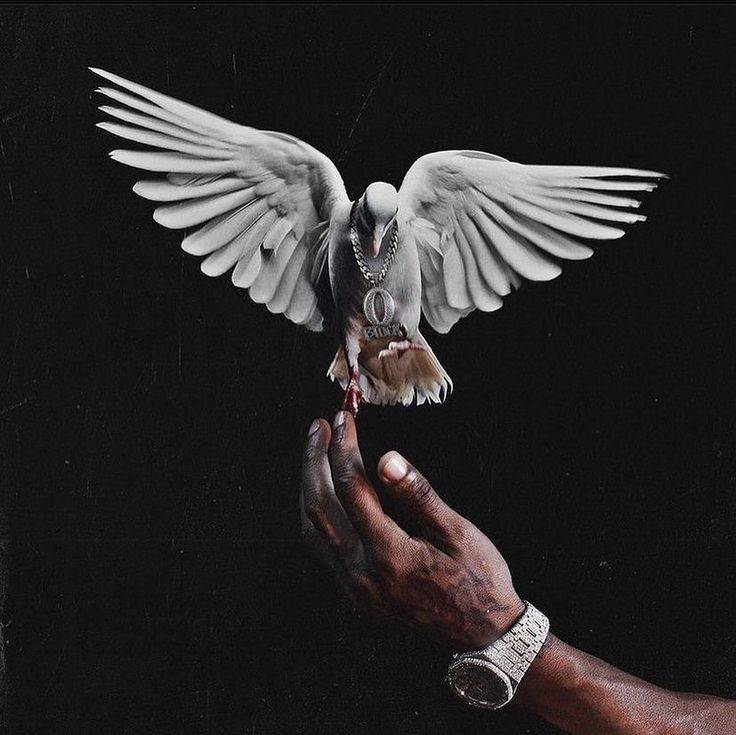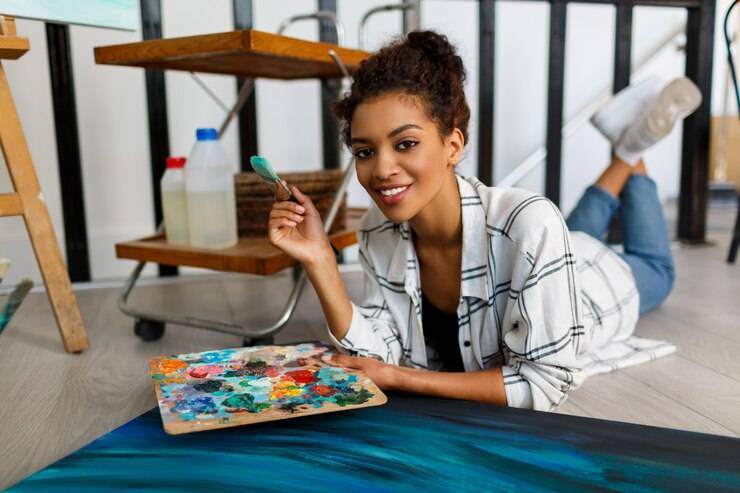How a Creative Hobby Can Boost Your Mental Health
In today’s fast-paced world, where the demands of work, family, and social obligations often consume much of our time, it’s easy to overlook the importance of taking a step back and caring for our mental health. While there are many ways to improve mental well-being, one of the most effective yet underrated tools for managing stress, anxiety, and depression is engaging in a creative hobby. Whether it’s painting, writing, knitting, playing an instrument, or any other creative endeavor, these activities have been shown to provide numerous mental health benefits.
But what exactly is it about creativity that can boost our mental well-being? In this blog post, we’ll explore the science behind creativity and mental health, the various ways a creative hobby can help alleviate stress, and how you can integrate creativity into your life for better mental health.
1. Creativity Offers a Healthy Outlet for Emotions
One of the most powerful aspects of creativity is its ability to serve as an emotional outlet. Life can be overwhelming, and sometimes our feelings—whether it's stress, frustration, sadness, or joy—need an outlet. A creative hobby provides a safe and healthy space to express these emotions without judgment or criticism.
When you engage in creative activities, you're able to channel intense emotions into something tangible. Whether it’s through the strokes of a paintbrush, the words you write, or the music you play, creativity allows you to externalize what you're feeling inside. This process of expression can be incredibly therapeutic and help release pent-up emotions that might otherwise contribute to mental health struggles.
For example:
- Art can help process emotions like grief or anger by giving you a way to release what’s inside.
- Writing can be an excellent tool for reflecting on your thoughts and personal experiences, helping to create clarity and emotional release.
- Music offers a universal form of self-expression, whether you're composing, playing, or singing, allowing for a deep emotional connection with the music itself.
Engaging with emotions in a creative way allows you to confront them head-on, which can be far more productive than bottling them up.
2. Creativity Can Reduce Stress and Anxiety
One of the primary mental health benefits of engaging in a creative hobby is its ability to reduce stress and anxiety. In a world where we are constantly bombarded with information, expectations, and challenges, it’s easy to feel overwhelmed. Creative activities provide an escape—a break from the constant mental chatter.
Studies have shown that focusing on a creative task can help lower the levels of cortisol, the stress hormone. The act of creating something—whether it’s a piece of art, a craft, or even a poem—requires concentration and focus. This "flow" state, often referred to as being "in the zone," can be incredibly calming, as it pulls your attention away from negative thoughts and worries.
Here’s how creativity helps reduce stress:
- It distracts you from daily worries, allowing your mind to focus on the task at hand.
- It promotes mindfulness, helping you stay present and engage fully with your work.
- It creates a sense of accomplishment and purpose, which can counteract feelings of anxiety or helplessness.
The combination of focus, accomplishment, and mindfulness that comes from creating can lead to lower levels of anxiety and a more relaxed mental state.
3. Creativity Fosters Self-Expression and Identity
A creative hobby can be an excellent way to express your true self. Often, in the rush of daily life, we may lose sight of who we are or what we truly enjoy. When you engage in a creative activity, you’re given the opportunity to explore and express your individuality, whether through colors, words, sounds, or actions. This self-expression can foster a greater sense of identity and self-worth, which are vital components of mental health.
When you create something that’s uniquely yours, it gives you a sense of ownership and accomplishment. You get to see your ideas come to life, and this process can help build your confidence and reinforce your sense of self. The freedom to explore and create without the constraints of external judgment or criticism also offers a safe space to experiment with different facets of your personality.
Additionally, creative hobbies can help you:
- Discover hidden talents you may not have known about, boosting your confidence and self-esteem.
- Create a sense of pride in your work, knowing that you produced something from your own ideas and efforts.
- Form a positive self-image by connecting with your inner creativity and realizing your potential.
The act of creating without judgment or expectation allows for a deeper understanding of yourself, which can have profound effects on your mental well-being.
4. Creativity Encourages Mindfulness and Presence
Mindfulness—the practice of being present and fully engaged in the moment—is another powerful mental health benefit of creative hobbies. Many creative activities require your full attention, which naturally encourages mindfulness. Whether you’re painting, drawing, knitting, or dancing, these hobbies can help ground you in the present moment and prevent your mind from wandering into negative thought patterns or anxiety.
When you focus on a creative task, you're actively engaging with the present, which can help you escape the cycle of rumination and worry that often accompanies anxiety or depression. It’s a way of resetting your mental state and finding peace through focus and awareness. The rhythmic repetition of tasks, like knitting or sculpting, can have a meditative effect, allowing your mind to relax and reset.
Here’s how creativity promotes mindfulness:
- It allows you to be in the present, reducing overthinking and stress.
- It encourages focus, which can be an effective tool for calming your mind and reducing anxiety.
- It helps create a routine of self-care, where engaging in creativity becomes a form of mental relaxation.
By practicing mindfulness through creativity, you can gain a sense of clarity and control over your emotions, which are often chaotic in times of mental distress.
5. Creativity Can Improve Problem-Solving and Cognitive Flexibility
Another mental health benefit of engaging in creative hobbies is the improvement of problem-solving skills and cognitive flexibility. Many creative activities require you to think critically, experiment, and find innovative solutions. Whether you’re working on a puzzle, writing a story, or solving a design problem, creativity encourages you to think outside the box and approach challenges from new angles.
This process of creative thinking can help you develop cognitive flexibility, which is the ability to adapt to new situations and think more positively when faced with obstacles. This adaptability can translate to real-life situations, improving your mental resilience in stressful or challenging circumstances.
Engaging in creative activities can:
- Enhance your ability to think critically and approach problems in innovative ways.
- Boost cognitive flexibility, allowing you to adapt more easily to changing circumstances.
- Promote a growth mindset, encouraging you to see challenges as opportunities for learning and self-improvement.
By honing your problem-solving skills through creativity, you build mental resilience that can positively impact your mental health and ability to cope with life’s challenges.
6. Creativity Can Build Social Connections
Many creative hobbies offer opportunities for social interaction, whether you’re participating in an art class, joining a book club, or collaborating on a project with others. Social connections are an essential aspect of mental health, and creative activities can help you build and strengthen relationships with others.
Being part of a community of like-minded individuals can provide support, encouragement, and a sense of belonging. Sharing your creative work with others and receiving feedback can also boost your self-esteem and foster positive relationships.
Whether it’s an in-person activity or an online community, participating in creative hobbies can help you:
- Build new friendships with others who share your interests.
- Combat feelings of isolation by creating social bonds.
- Receive constructive feedback and validation, which can boost your confidence.
The social benefits of creativity can help alleviate loneliness, reduce stress, and improve your overall mental health.
7. Creativity Promotes a Sense of Accomplishment
Engaging in creative activities gives you a sense of accomplishment when you complete a project or master a new skill. Whether it’s finishing a novel, learning a new song, or completing a painting, the act of creation provides a tangible outcome that can boost your mood and self-esteem.
The sense of achievement that comes from completing a creative project can help combat feelings of inadequacy or low self-worth, which are common in conditions like depression or anxiety. It reminds you that you are capable, resourceful, and resilient.
Conclusion
Creative hobbies offer a multitude of benefits for mental health, from providing emotional release and reducing stress to boosting self-esteem and fostering mindfulness. Whether you’re exploring a new craft or revisiting a childhood passion, engaging in creativity can serve as a powerful tool for improving your mental well-being. So, if you’re feeling overwhelmed or disconnected, consider picking up a creative hobby as a way to nurture your mind and rediscover joy.
Remember, you don’t have to be a professional artist to experience the benefits of creativity—just allow yourself to enjoy the process, and let creativity work its magic on your mental health.




No comments yet
Be the first to share your thoughts!